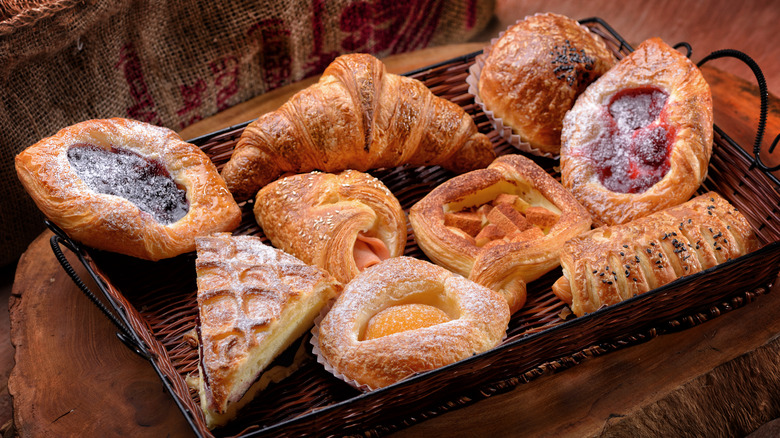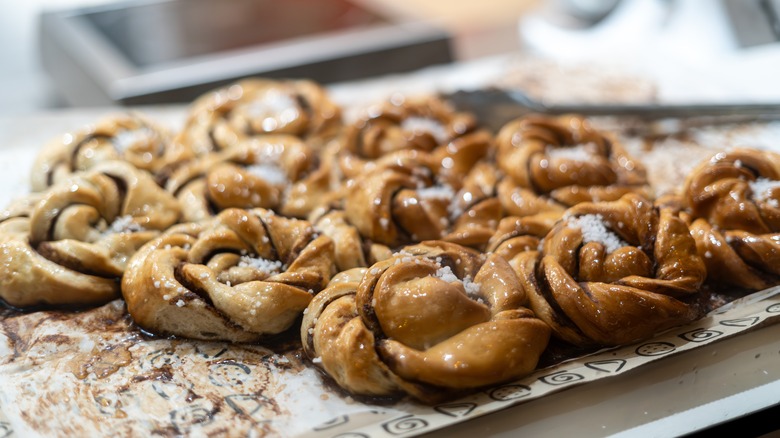The Unique Way Bakeries Keep Pastries Fresh – And How You Can Do It At Home
When freshly baked, pastry is a beautiful thing. But we all know the pretty unfortunate truth: Pastry goes stale, and quickly. You'll be lucky if you get a day out of a pastry before it starts losing its fresh quality and starts tasting flat, with that dreaded mealy texture to match. But professional bakeries have a technique at their disposal, one that helps buy a little extra time before that dreaded staleness kicks in. We spoke to Vivian Villa, chef and founder of UnButter, a plant-based butter company, about the secret weapon that stretches out the lifespan of a pastry.
Villa says that a glaze is an extra barrier that prevents air from getting to its surface. In terms of time, she explains that they should be eaten within two days — but humidity will also affect how long it takes for pastry to go stale. In order to keep your pastry around for longer, she says that refrigerating pastry can help it last up to one week when stored in an air-tight container. Your best bet, however, is to individually freeze each pastry on a sheet pan in the freezer, then bag them up once they're frozen.
How to make an easy glaze at home for baked goods
If you're an avid baker, Villa says you can easily make your own glaze at home. The best part is, cooking isn't always necessary. For a no-cook glaze, Villa says, "Liquid combined with sugar at a ratio of 1:1 (1 cup sugar per 1 tablespoon of liquid) is all that's required to make a simple, no-cook glaze. Any liquid can work (water, juice, coffee, milk, liqueur) when combined with sugar (icing, brown sugar, monk fruit, maple sugar) in addition to flavorings and spices — the possibilities are only limited by the baker's imagination."
You can also whip up a quick cooked one. This'll have a richer feel to it, since it contains butter. Villa says, "For a cooked glaze, measure equal parts butter, sugar, and liquid; in a heavy saucepan melt the butter, dissolve the sugar, followed by the liquid. Bring to a boil, then turn off the heat. Drizzle warm or let cool for a crackled glaze finish."
No matter which type of glaze you choose, either will keep that ambient moisture at bay, at least for a little while. If you can't finish what you have, consider freezing the last of it for a longer shelf life. Knowing how much people love their pastries, there's a good chance they'll be gone soon anyway.

